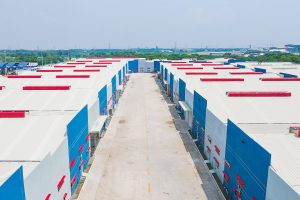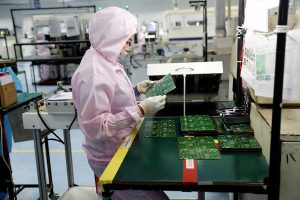Gov’t urged to create single regulator to oversee supply chain

By Arjay L. Balinbin, Senior Reporter
THE government needs to create a single regulator to oversee the supply chain industries, a procurement executive said.
The regulator needs to be a “high-level body that will facilitate stronger collaboration between the public and the private sector in setting policies, initiatives, and programs that are required to address constraints and improve supply chain performance,” according to Jesus Carlos “Charlie” P. Villaseñor, chairman of the Procurement and Supply Institute of Asia (PASIA), speaking at the BusinessWorld Insights online forum.
There should be a “national supply chain control tower to monitor demand and supply conditions, gain visibility on supply market analysis as it impacts health, livelihood, trade and the economy,” he added.
Mr. Villaseñor, who is also the chief executive officer of TransProcure Corp. and PASIA Shared Services Corp., described supply chain issues as complex, fragmented, and under pressure.
There is a “lack of integrated supply chain management focus at the national level,” he noted.
“No focal point for national end-to-end supply chain undertakings. No strategic drive,” he added.
He said strong leadership and experience, as well as government and private-sector partnerships, are necessary to deliver results.
He said a degree of uncertainty clouds the industry’s prospects during the next large-scale emergency, due to the absence of reliable data on demand and supply which the industry relies on to manage capacity constraints and exploit supply opportunities.
“Micro-, small-, and medium-sized enterprises (MSMEs) are closing with idle or no advance warning. They will not open again easily,” Mr. Villaseñor said.
Financial or capital issues also persist, while professionals are not well-trained in global supply chain standards, he said.
This means that “non-traditional financial access is needed, and (we should) push large enterprises to allocate a certain percentage of their spend to MSMEs,” Mr. Villaseñor said.
He cited the need for “human resource development programs and recognition,” as well as “professional certification in the conduct of practice.”
Marjorey M. Rubio, president and founder of BEXCS Logistics Solutions, Inc., said large companies are beginning to help MSMEs in building a sustainable supply chain.
“One of the biggest trends that we are looking at right now is that larger entities will be the ones to support the MSMEs in order to sustain (the) supply chain,” she said.
“The collaboration between large and small enterprises is going to be crucial in building a resilient supply chain.”
She said that MSMEs are not well-placed to service the e-commerce industry and have limited access to suppliers.
“The consumers are dictating the demand — or which items they would buy from the sellers — and most of our sellers source separately and on their own, so the reason there is not a fast way of sourcing their items is that they consider two types of suppliers, local and foreign. But I think a large percentage of the supplies that are being sold in the market are coming from foreign suppliers, and there is a small percentage coming from our local suppliers,” Ms. Rubio said.




